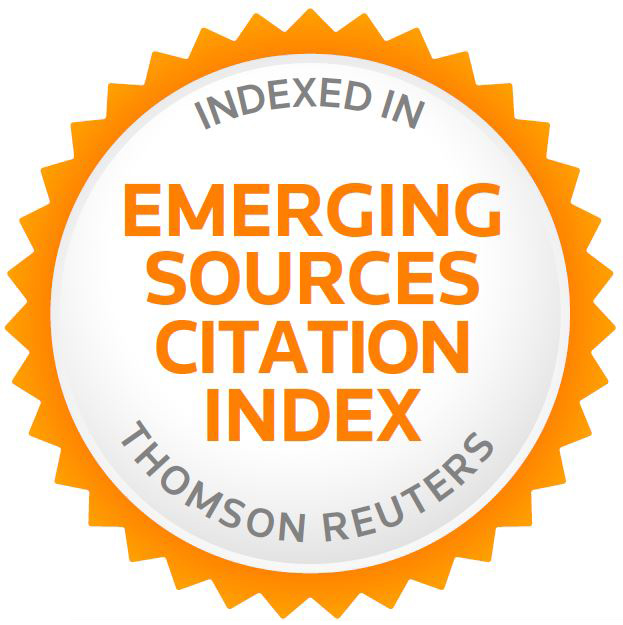El turismo como herramienta: rehumanizando las favelas de la Zona Sur de Río de Janeiro a través de narrativas de turismo comunitario
Resumen
Este artículo propone un marco conceptual para el turismo comunitario en las favelas de la Zona Sur de Río de Janeiro, el cual beneficia a estas comunidades. Se explica cómo los guías locales utilizan el turismo como una herramienta para combatir la prevalente percepción negativa de las favelas y cómo ellos intentan rehumanizar la favela al brindar una narrativa cultural alternativa que cuestiona los estereotipos existentes, haciendo de estas visitas una forma de resistencia cotidiana. El artículo cubre el impacto material de estas visitas al resaltar las percepciones de los turistas antes y después de visitar una favela e incluye la opinión de residentes locales de una favela acerca de estas visitas.Referencias
Bauman, Z. (2000). Liquid Modernity. Cambridge: Polity Press.
Bauman, Z. (2001). Community: Seeking Safety in an Insecure World. Londres: Polity Press.
Bentes, I. (2003). The Sertão and the Favela in Contemporary Brazilian Film. En L. Nagib (Ed.), The New Brazilian Cinema (pp. 121-137). Londres: IB Tauris. doi 10.1353/lbr.2006.0030
Braga, G. (2015). Rio de Janeiro é o destino preferido dos turistas estrangeiros que visitam o Brasil a lazer. Mistério do Turismo. Recuperado de turismo.gov.br
Braga, G. (2016). Rio de Janeiro é o destino preferido dos turistas estrangeiros que visitam o Brasil a lazer. Mistério do Turismo. Recuperado de turismo.gov.br
Carter, J. (2005). An Outsider’s View of Rocinha and its People (tesis de maestría). University of Texas, Austin, Estados Unidos.
Catalytic Communities, CatComm (2016). Favela Facts 101. CatComm. Recuperado de: catcomm.org
Cejas, M. (2006). Tourism in Shantytowns and Slums: A New «Contact Zone» in the Era of Globalization. Intercultural Communication Studies, 15(2), 224-230. doi 10.1.1.547.1574
Codoner, B. (2010). Popularization of TV Globo in Brazil (tesis de bachillerato). Ohio State University, Estados Unidos.
Cohen, E., Nir, Y., & Almagor, U. (1992). Stranger-Local Interaction in Photography. Annals of Tourism Research, 19(2), 213-233. doi 10.1016/0160-7383(92)90078-4
De Certeau, M., & Giard, L. (1998). The Practice of Everyday Life, vol. 2. Minneapolis: University of Minnesota Press.
DeWalt, K., & DeWalt, B. (2011). Participant Observation: A Guide for Fieldworkers, 2a ed. Lanham: Altamira Press.
Dwek, D. (2004). Favela Tourism: Innocent Fascination or Inevitable Exploitation (disertación de maestría). Institute of Latin American Studies, Londres, Reino Unido.
Fainstein, S., & Gladstone, D. (1999). Evaluating Urban Tourism. En The Tourist City (pp. 21-34). New Haven: Yale University Press.
Freire-Medeiros, B. (2009). The Favela and its Touristic Transits. Geoforum, 40(4), 580-588. doi 10.1016/j.geoforum.2008.10.007
Freire-Medeiros, B. (2010). Entre tapas e beijos: a favela turística na perspectiva de seus moradores. Sociedade e Estado, 25(1), 33-51. doi 10.1590/S0102-69922010000100003
Freire-Medeiros, B. (2012). Favela Tourism. Listening to Local Voices. En F. Frenzel, K. Koens, & M. Steinbrink (Eds.), Slum Tourism: Poverty, Power and Ethics (pp. 175-192). Londres: Routledge.
Frenzel, F., Koens, K., & Steinbrink, M. (2012). Slum Tourism: Poverty, Power and Ethics, vol. 32. Londres: Routledge.
Gentlemen, A. (7 de mayo de 2006). Slum Tours: A Day Trip Too Far. The Guardian. Recuperado de https://www.theguardian.com/travel/2006/may/07/delhi.india.ethicalliving
Giddens, A. (1991). Modernity and Self-identity: Self and Society in the Late Modern Age. Redwood: Stanford University Press.
Gorman, E. (12 de junio de 2014). Favela-dwellers Challenge Rio’s Exotic Tours. Al-Jazeera. Recuperado de https://www.aljazeera.com/indepth/features/2014/06/favela-dwellers-challenge-rio-exotic-tours-20146111206390364.html
Gotham, K. (2007). Selling New Orleans to New Orleans: Tourism Authenticity and the Construction of Community Identity. Tourist Studies, 7(3), 317-339. doi 10.1177/1468797608092515
GWK Travelex. (2019). Braziliaanse real wisselen en kopen. GWK Travelex. Recuperado de https://www.gwktravelex.nl/buitenlands-geld-wisselen/braziliaanse-real
Jaguaribe, B., & Hetherington, K. (2004). Favela Tours: Indistinct and Mapless Representations of the Real in Rio de Janeiro. En M. Sheller, & J. Urry (Eds.), Tourism Mobilities: Places to Play, Places in Play (pp. 155-166). Nueva York: Routledge.
Judd, D. (1995). Promoting Tourism in US Cities. Tourism Management, 16(3), 175-187. doi 10.1016/0261-5177(94)00018-6
Katz, J. (2009). Time for New Urban Ethnographies. Ethnography, 10(2-3), 285-304.
Kottak, C. (1991). Of Cultural Import: Television’s Impact on Values and Local Life in Brazil. Journal of Communication, (41). doi 10.1111/j.1460-2466.1991.tb02293.x
Lilja, M. (2008). Power, Resistance and Women Politicians in Cambodia: Discourses of Emancipation. Copenhague: Nias Press.
Lisboa, N. (10 de diciembre de 2015). Lei combate o turismo exploratório nas favelas. Viva Favela. Recuperado de http://vivafavela.vivario.org.br/tag/favela/
MacCannel, D. (1992). The Tourist: A New Theory of the Leisure Class. Nueva York: Shocken.
Meirelles, F., & Lund, K. (Dirs.) (2003). Cidade de Deus. Los Ángeles: Miramax Films.
Padlha, J. (Dir.) (2007). Tropa de elite. Río de Janeiro: Zazen Produções.
Padlha, J. (Dir.) (2010). Tropa de elite 2. O inimigo agora é outro. Río de Janeiro: Zazen Produções.
Philp, J., & Mercer, D. (1999). Commodification of Buddhism in Contemporary Burma. Annals of Tourism Research, 26(1), 21-54. doi 10.1016/s0160-7383(98)00050-4
Porta dos Fundos. (2014). Pobre. You Tube. Recuperado de http://bit.ly/2ePxSNy
Rafter, N. (2000). Shots in the Mirror: Crime Films and Society. Oxford: Oxford University Press.
Ramchander, P. (2007). Soweto Set to Lure Tourists. En A. Bennett, & R. George (Eds.), South African Travel and Tourism Cases (pp. 200-210). Pretoria: Van Schaik.
Rolfes, M. (2010). Poverty Tourism: Theoretical Reflections and Empirical Findings Regarding an Extraordinary Form of Tourism. GeoJournal, 75(5), 421-442. doi 10.1007/s10708-009-9311-8
Sánchez, F., & Broudehoux, A.-M. (2013). Mega-events and Urban Regeneration in Rio de Janeiro: Planning in a State of Emergency. International Journal of Urban Sustainable Development, 5(2), 132-153. doi 10.1080/19463138.2013.839450
Selinger, E., & Outterson, K. (2010). The Ethics of Poverty Tourism. Environmental Philosophy, 7(2), 93-114. doi 10.5840/envirophil20107217
Shils, E. (1972). Intellectuals and the Powers and other Essays. Chicago: University of Chicago Press.
Steinbrink, M. (2014). Festifavelisation: Mega-events, Slums and Strategic City-staging. The Example of Rio de Janeiro. Die. Erde. Journal of the Geographical Society of Berlin, 144(2), 129-145.
Steinbrink, M., & Pott, A. (2010). Global Slumming. Zur Genese und Globalisierung des Armutstourismus. En Tourismusräume. Zur soziokulturellen Konstruktion eines globalen Phänomens (pp. 247-270). doi 10.14361/9783839411940-013
Straubhaar, J. (1991). Beyond Media Imperialism: Asymmetrical Interdependence and Cultural Proximity. Critical Studies in Media Communication, 8(1), 39-59. doi 10.1080/15295039109366779
Suanscri, P. (2003). Community based Tourism Handbook. Bangkok: Responsible Ecological Social Tour-Rest.
Talbot, A., & Carter, T. (2018). Human Rights Abuses at the Rio 2016 Olympics: Activism and the Media. Leisure Studies, 37(1), 77-88. doi 10.1080/02614367.2017.1318162
Urry, J. (1994). Cultural Change and Contemporary Tourism. Leisure Studies, 13(4), 233-238. doi 10.1080/02614369400390181
Urry, J. (2001). Globalising the Tourist Gaze. Tourism Development Revisited, (150). doi 10.4135/9788132100058.n10
Urry, J. (2012). Sociology Beyond Societies: Mobilities for the Twenty-first Century. Londres: Routledge.
Van Rompu, P. (2017a). Favelife: Different Narratives, Different Stories. Social Constructions of Rio de Janeiro’s Favelas in Films & Tours (tesis de maestría). Utrecht University, Países Bajos.
Van Rompu, P. (2017b). From the Screen to the Streets: The Dehumanization of Favelas in Popular Films. Entropia, 90-130. Recuperado de http://www.entropia.slg.br/index.php/entropia/article/view/57
Vinthagen, S., & Johansson, A. (2013). Everyday Resistance: Exploration of a Concept and its Theories. Resistance Studies Magazine, 1(1), 1-46.
Weiner, E. (12 de octubre de 2009). Slum Visits: Tourism or Voyeurism. The New York Times. Recuperado de https://www.nytimes.com/2008/03/09/travel/09heads.html
Williams, C. (2008). Ghettourism and Voyeurism, or Challenging Stereotypes and Raising Consciousness? Literary and Non-literary Forays into the Favelas of Rio de Janeiro. Bulletin of Latin American Research, 27(4), 483-500. doi 10.1111/j.1470-9856.2008.00280.x
Wynn, J. (2005). Guiding Practices: Storytelling Tricks for Reproducing the Urban Landscape. Qualitative Sociology, 26(4). doi 10.1007/s11133-005-8365-2
Wynn, J. (2010). City Tour Guides: Urban Alchemists at Work. City & Community, 9(2), 145-164. doi 10.1111/j.1540-6040.2010.01322.x

Esta obra está bajo licencia internacional Creative Commons Reconocimiento 4.0.
Apuntes, revista de Ciencia Sociales publica todos sus artículos y reseñas bajo la licencia Creative Commons Attribution (CC BY 4.0) con el objetivo de fomentar el intercambio académico a nivel mundial. Por ello, la obra en cuestión puede ser distribuida, remezclada, retocada, etc., como el autor y los lectores de la misma lo estimen conveniente. La única condición es que se cite a la revista Apuntes, revista de Ciencias Sociales como entidad editora del texto.








.jpg)



